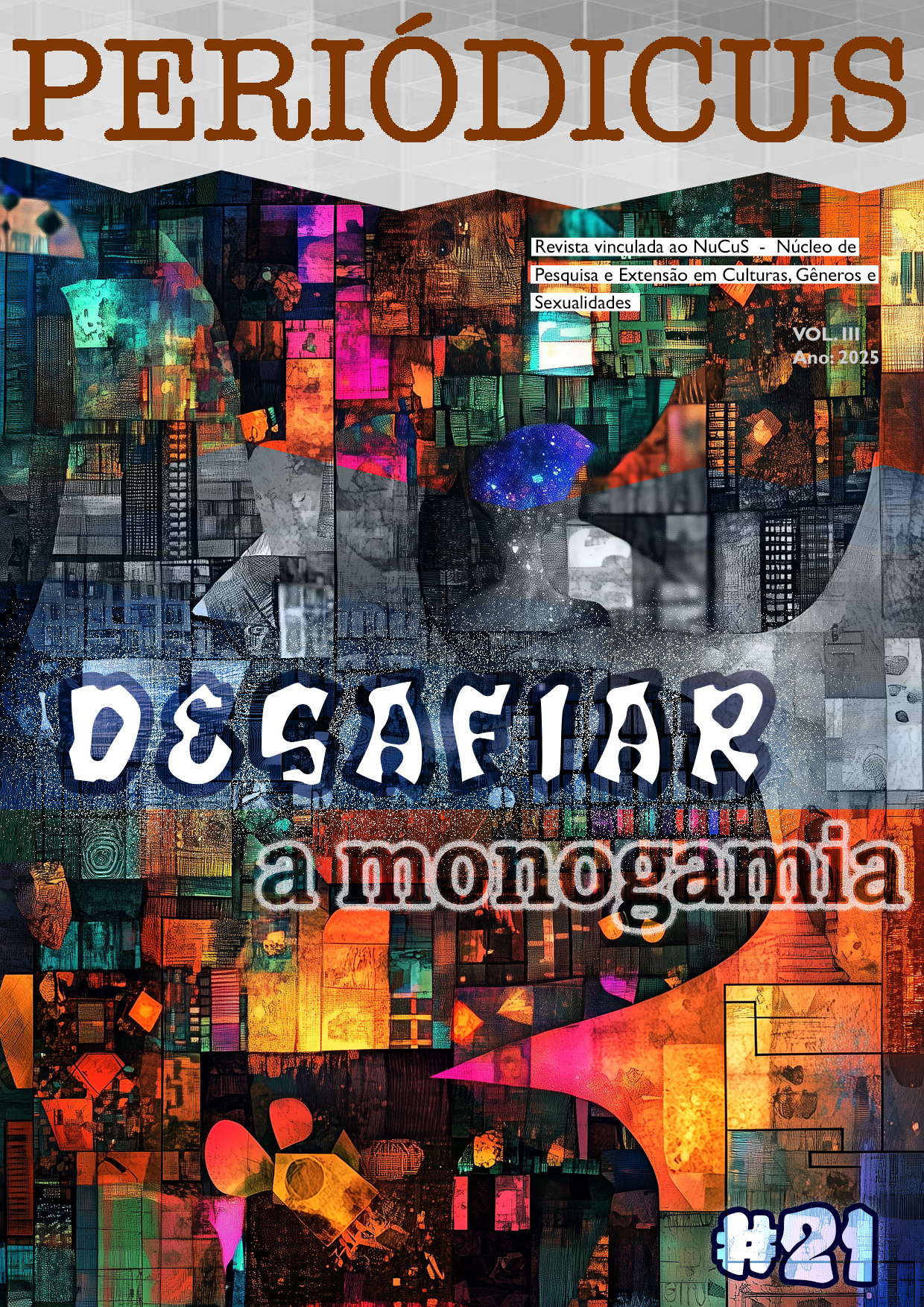Lesbianism and blackness
an analysis based on the experiences of the character alike
DOI:
https://doi.org/10.9771/peri.v3i21.64532Abstract
This article, with a qualitative approach, addresses the intersection of lesbianism and blackness through the analysis of the identity of the character Alike, the protagonist of the film "Pariah". The objective of this work is to understand, within the discourse of the existence of black women in cinematographic art, how macro and micro-violences intersect the identities of black lesbian women, analyzing the character's life story narrative. The analysis was constructed through Critical Social Psychology, in dialogue with dialectical historical materialism, providing an understanding of the character's identity as a constantly evolving process. We observed that the intersections of lesbophobia and racism permeate the construction of the identity of the character, limiting her possibilities of existence. The research allowed us to perceive the importance of constructing a political identity in the character's story, as this enables the construction of fragments of emancipation.
Downloads
Downloads
Published
How to Cite
Issue
Section
License
Copyright (c) 2025 Tiffany Simpliciana de Souza, Isadora Oliveira Rocha , Renata Chrystina Bianchi de Barros, Fernando César Paulino-Pereira

This work is licensed under a Creative Commons Attribution-NonCommercial 4.0 International License.
Authors who publish in this journal agree to the following terms:
Authors retain copyright and grant the journal the right of first publication, with the work simultaneously licensed under a Creative Commons Attribution Noncommercial License that allows the work to be shared with acknowledgment of authorship and initial publication in this journal, but prohibits commercial use.
Authors are authorized to enter into separate additional contracts for non-exclusive distribution of the version of the work published in this journal (e.g., publishing in an institutional repository or as a book chapter), with acknowledgment of authorship and initial publication in this journal.
Authors are permitted and encouraged to publish and distribute their work online (e.g., in institutional repositories or on their personal website) at any point before or during the editorial process, as this can generate productive changes and increase the impact and citation of the published work (see The Effect of Open Access).








